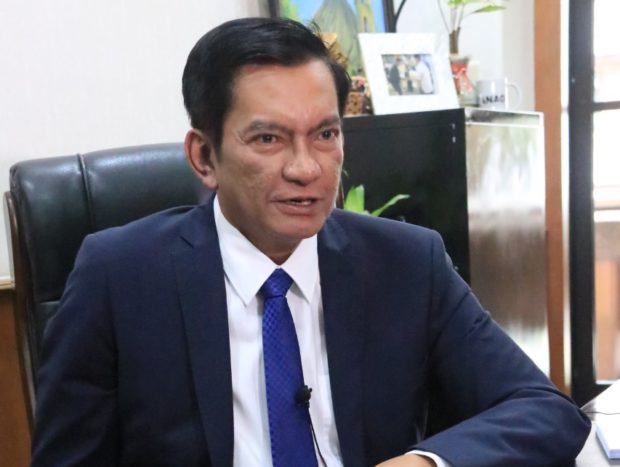
Albay Rep. Joey Salceda. (INQUIRER FILE PHOTO)
MANILA, Philippines — Albay Rep. Joey Salceda on Wednesday called for the lifting of the deployment ban on Filipino workers seeking employment abroad to help reduce the impact of the peso’s depreciation against the US dollar.
At the same time, he urged the Department of Social Welfare and Development (DSWD), the Department of Agriculture (DA), and the Land Transportation Franchising and Regulatory Board (LTFRB) to immediately release pending cash subsidies for sectors heavily affected by high fuel costs.
In a statement, Salceda asked incoming Labor Secretary Bienvenido Laguesma and Migrant Workers Secretary Susan Ople to prioritize on their first week on the job the lifting of the deployment bans on in-demand overseas Filipino workers’ (OFW) jobs, particularly health-care workers, “to help mitigate the impacts of currency depreciation and create jobs for Filipinos.”
“When the peso is cheap, the easiest logical choice is to earn more foreign currency. There is no easier way to do that, in our case, than to allow OFWs to work wherever they wish. Labor mobility is a human right, after all. And in this case, it’s good economics, too,” he said.
‘Earn more dollars’
Salceda cited the health-care worker deployment ceiling of 6,500 enforced by the Philippine Overseas Employment Administration in November 2021, with plans to raise this to 7,500 this year.
“Just lift the deployment bans. It’s contrary to sound social policy. It’s also bad economic policy,” he pointed out, adding that the Philippines normally deployed in a year up to 23,000 healthcare workers who individually earned around P150,000 monthly.
“So, you are forgoing some P18 to P28 billion in annual income for Filipino families just for health-care workers alone. That’s earned income, not income we need to give in [aid],” Salceda said, noting that the amount makes up around 4 to 5 percent of OFW remittances every year.
According to him, he and incoming Bangko Sentral ng Pilipinas Governor Felipe Medalla both believed that the best path to manage the peso depreciation was “not to artificially support the currency, but to just earn more dollars” through OFWs and exports. “That way, the depreciation benefits the economy,” Salceda said.
He stressed that Filipinos have the right, barring security and legal reasons, to work wherever they think would help them and their families.
Salceda also called on the DSWD, DA, and LTFRB to immediately distribute cash aid intended for the poor, farmers, and transport sector “to help tide the economic pain for millions of Filipino households.”
According to him, the DSWD still has P9.4 billion worth of unreleased aid from the Tax Reform for Acceleration and Inclusion unconditional cash transfer.
The DA, on the other hand, has yet to distribute the rice farmer financial assistance of P5,000 each, while the LTFRB has not yet released Pantawid Pasada subsidies.
RELATED STORIES
Ople eyes review of OFW hiring system: Bad employers have it easier
Migrant workers dep’t chief claims Bello can’t impose deployment ban on Saudi Arabia
POEA: 7.5K deployment cap for healthcare workers not yet reached